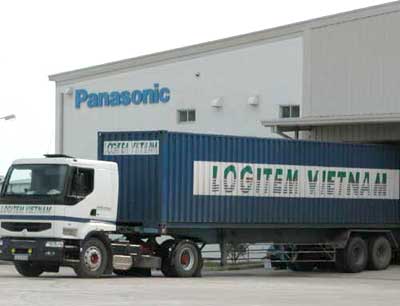|
VietNamNet
– Vietnam has been recognised as having high growth in FDI
attraction. However, it is positioned 75th among 140
countries on the UNCTAD ranking on Inward FDI Potential Index.
 |
| The
service sector in Vietnam needs a great more deal of
attention. (Photo Hoang Huong) |
Last
week the United Nations Conference on Trade and Development
(UNCTAD) released a report on global FDI it had conducted,
revealing telling global rankings. According to the report,
Vietnam ranks the 50th among 144 countries on the
Inward FDI Performance Index.
The
report attributed the FDI upswing in Vietnam to worldwide economic
recovery.
Vietnam,
together with other Asian countries, can look forward to
increasing FDI inflow as a result of the trend toward shifting of
production facilities from high-cost to low-cost locations.
Though
obvious advances in recent years were recognised, the report
showed that Vietnam still has to resolve the many issues that
threaten FDI interest. Location uncertainty and the lack of
transparency in policies, only serve to compound the frustrations
investors experience with complicated administrative procedures.
FDI
quality was a serious issue highlighted by Jonathan Pincus, United
Nations Development Programme (UNDP) Country Economist.
“FDI
quantity is not the most important target, I think that quality
matters more now,” he said. The country has been advised to
focus on FDI attraction in fields that create more jobs, transfer
advanced technology and promote exports.
For
example, the service sector in Vietnam needs a great deal more
attention.
While
there is an obvious trend to shift investment from production to
the service sector, Vietnam lags behind in the area, said
Christina Hernander, Senior Technical Advisor with the UNDP.
The
UNCTAD report indicated that the service sector is responsible for
60% of global FDI value, estimated at $4,400bil. From 1990-2002,
FDI flow into energy sectors increased from $10bil to $144bil
worldwide, while the telecommunications, warehouses and transport
rose to $476bil from $29bil.
In
developed countries, the service sector contributes 50-70% or
higher to GDP, however, the sector claims just 40% in Vietnam.
Vietnam
is yet to map out a workable plan for service sector development,
experts say. Development strategies have been devised for every
branch of the service sector; however, these strategies are not
interlinked and often run counter to common comprehensive
development.
In
the report, Vietnam is cited as an example of efforts to improve
the investment climate, having established the Foreign Investment
Agency (FIA) to attract FDI.
The
agency exists within the Ministry of Planning and Investment, from
where it supervises foreign investment activities and reviews and
improves the country’s foreign investment policy. A series of
new policies have been adopted and more are being drawn up to meet
promises of a fair and equal playing field for both domestic and
foreign enterprises.
FIA
officials are optimistic about FDI prospects in Vietnam,
forecasting recovery in FDI capital attraction. So far this year,
total registered capital from 860 new or expanded projects has
reached $2.97bil, an increase of 41% over the same period of 2003.
Disbursed capital also increased 5% over the same period.
The
FIA has forecast high FDI flow this year, estimating $3.35bil. The
agency has received applications for 44 investment projects, whose
funding will total $2.2bil.
Kim
Chi – Huong Tran
|

